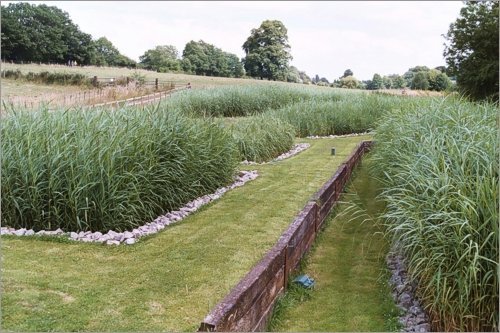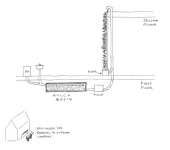
 8
8




 6
6




John Daley Bendigo, Australia The Enemy of progress is the hope of a perfect plan
Benefits of rainfall collection https://permies.com/t/88043/benefits-rainfall-collection
GOOD DEBT/ BAD DEBT https://permies.com/t/179218/mortgages-good-debt-bad-debt
 3
3




Ann said, Toilet blackwater needs a multi-chamber approach with an anaerobic component.
Invasive plants are Earth's way of insisting we notice her medicines. Stephen Herrod Buhner
Everyone learns what works by learning what doesn't work. Stephen Herrod Buhner
 4
4




Ann Baker wrote:
Tangentially, as a separate project, our home has a traditional 4 bedroom septic system and we are a family of 6. If we divert greywater from the shower, tub and washer will that cause a problem in our septic system? If I understand correctly the septic system needs enough water to function properly so, I'm worried about diverting too much water away from it.
Thank you for reading and replying!
 8
8




 1
1




John Daley Bendigo, Australia The Enemy of progress is the hope of a perfect plan
Benefits of rainfall collection https://permies.com/t/88043/benefits-rainfall-collection
GOOD DEBT/ BAD DEBT https://permies.com/t/179218/mortgages-good-debt-bad-debt

 6
6





Failure is a sign of activity and learning. It had nothing to do with under achievement
I never want to have a team member who has never failed - They are not doing!! 👍
 7
7




Visit Redhawk's soil series: https://permies.com/wiki/redhawk-soil
How permies.com works: https://permies.com/wiki/34193/permies-works-links-threads
 4
4
















 8
8




.jpg)
.jpg) There is a 100% catchment and the outflow can be measured for potential polutants.
There is a 100% catchment and the outflow can be measured for potential polutants.
Failure is a sign of activity and learning. It had nothing to do with under achievement
I never want to have a team member who has never failed - They are not doing!! 👍
 4
4
















 4
4




We have not installed this system. We have a reed bed system which I built from scratch. ( see post above)Ann Baker wrote:Paul Fookes! Amazing!
How much did your system cost?
Failure is a sign of activity and learning. It had nothing to do with under achievement
I never want to have a team member who has never failed - They are not doing!! 👍
 2
2





|
Be reasonable. You can't destroy everything. Where would you sit? How would you read a tiny ad?
Learn Permaculture through a little hard work
https://wheaton-labs.com/bootcamp
|




